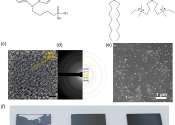Breakthrough in gas separation and storage could fast-track shift to green hydrogen
In 2016, experts writing in Nature listed seven breakthroughs in how we process chemicals that could change the world for the better. We believe we've just ticked one of those off the list.
Jul 15, 2022
3
238









